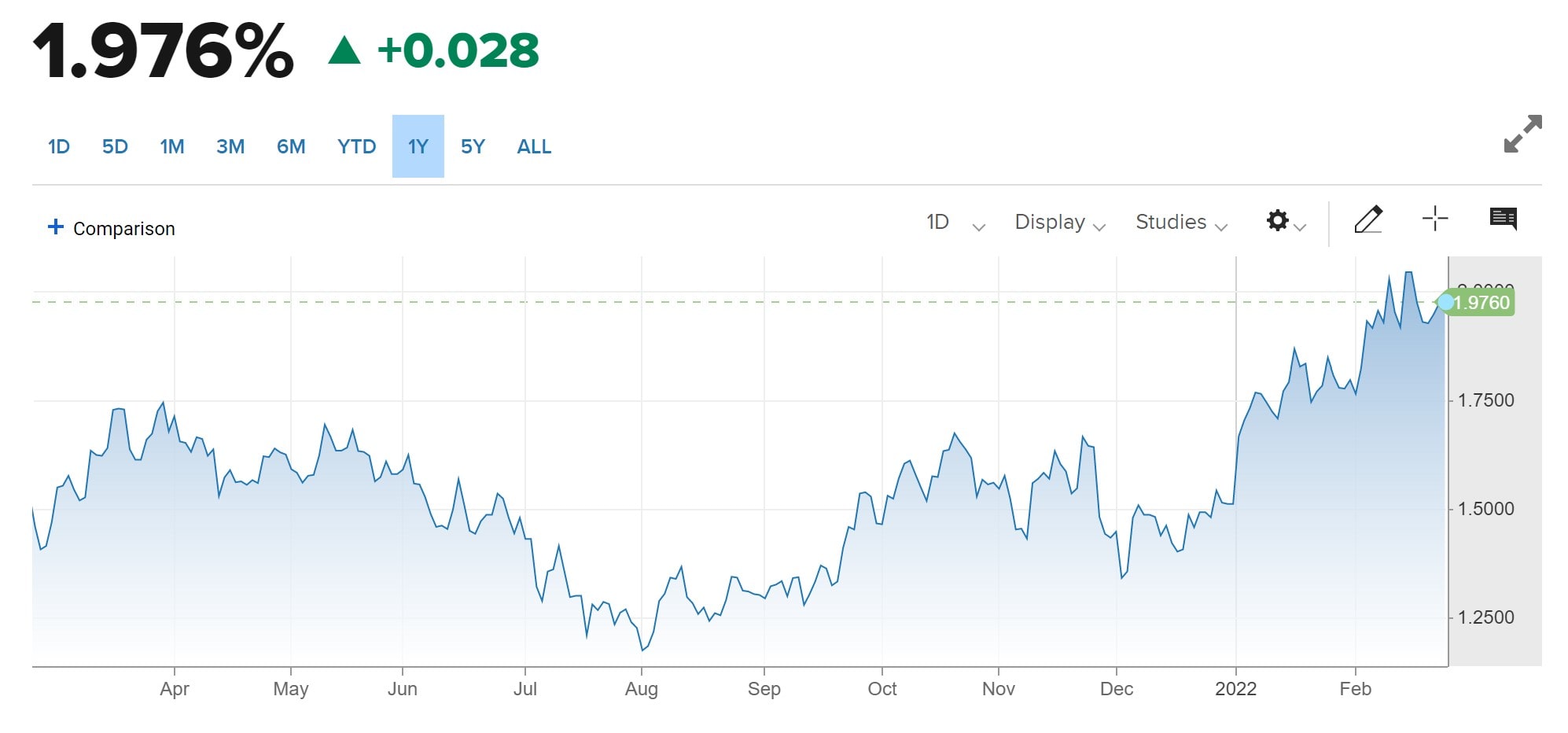| What could bonds possibly have to do with my stocks? Why should we care about those boring things at all? Newcomers to investing are often caught off guard by and bombarded with the reality of the bond markets, and how they unsuspectingly have plenty of bearing on our finances. Bond yields, namely the yield on the 10-year Treasury, are one of many indicators that analysts have come to use as economic barometers of sorts. So, why exactly is that? What influence do bond yields have on us? The skinny on the 10-year Treasury What is it? Government bonds are loans that investors make to the government in exchange for regular interest payments. The 10-year Treasury is a type of government bond that is backed by the full faith and credit of the US government, guaranteeing regular interest payments plus repayment of the borrowed money in 10 years’ time. The US government issues other similar fixed income securities but with differing maturity dates and yields. What about the yield? It’s the current rate bonds would pay investors if they bought them today. And the yield directly influences other interest rates, such as for mortgages. A rule of thumb to remember: a bond’s yield and price are inversely related. When demand is high and Treasury prices rise, yields fall, and vice versa. What does this have to do with me? Bonds are one of many indicators that analysts have come to use as economic barometers of sorts. Here are a few ways bond yields can subsequently impact the overall economy, and eventually, our finances: - Interest rates: Usually, if the 10-year yield falls, mortgage rates fall as well, which could strengthen the housing market and therefore the economy. If the future becomes uncertain and investors get worried about the economy, they look for safe-haven investments, which causes Treasury prices to rise and rates to decline.
- Borrowing and growth: The 10-year Treasury yield also influences a company’s borrowing rate. The higher it is, the more expensive it is for a company, potentially reducing their options to grow. When yields increase, it’s more expensive for companies to borrow and expand—serving as somewhat of a downer on equities.
- Your brokerage account: Rising yields usually also mean that investors are looking for investments with higher returns but it could also stoke fears that could pull capital away from the market—just as we’ve been seeing these days. The end result is that eventually, bond yields will inevitably exert influence over the markets, and whether or not your portfolio is nicked depends on its holdings.

Source—CNBC So what do you do with this? Add the 10-year Treasury to your watchlist and give it a glance every now and then while keeping up with the headlines, and you’ll be more in the know and smarter than most other investors just for knowing what’s causing your tech stocks to drop or the rate on that mortgage you were eyeing to rise. 💡 Here's a related lesson on this topic: |
No comments:
Post a Comment